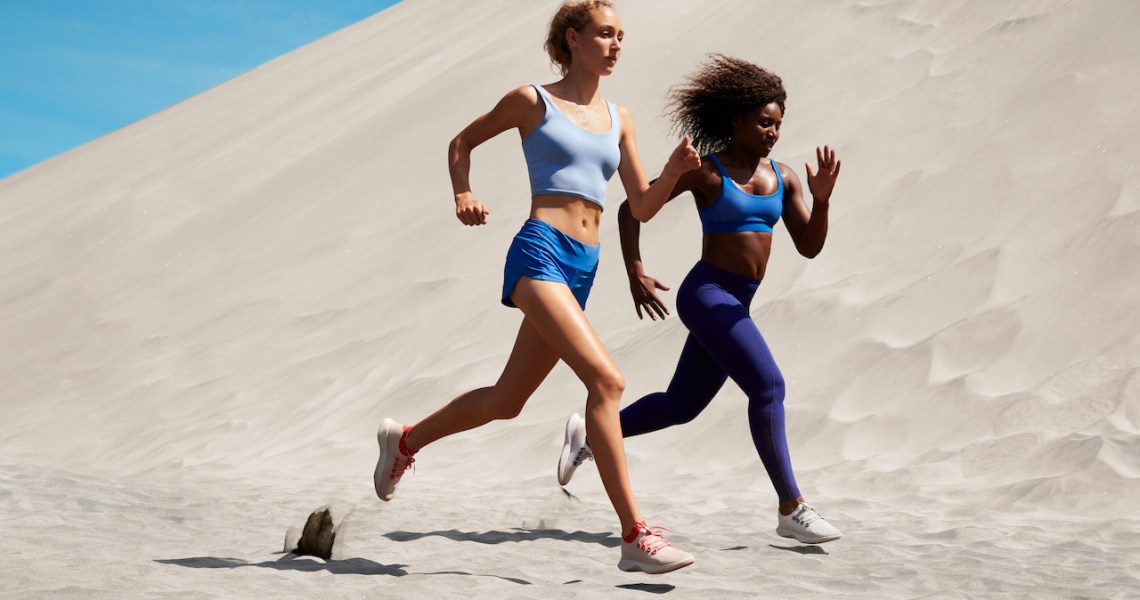Sustainable brands are battling layoffs and drops in sales like the rest of the fashion world, but many argue that they are better positioned for success in the coming months.
Across the industry, companies are laying off staff, turning to heavy discounting and figuring out how to fulfill orders with factories closed or slowed down. Fast fashion brands are taking a hit, still relying on of-the-moment trends to drive sales when more customers (and brands) are investing in loungewear and athletic apparel. It feels bleak overall, but sustainable brands like Allbirds, Cuyana and Mindd are moving ahead with new product launches and are keeping a positive outlook on the future.
Cuyana founders Karla Gallardo and Shilpa Shah feel confident that continuing to focus on core items that consumers can invest in — bags range from $85-$475, while at-home apparel ranges from $30-$345 — and use for a long time will keep the brand afloat. The company’s nimble supply chain, which has made it easier for the brand to shift product launches up or back, should also help, they said. For the foreseeable future, Cuyana has decided to slow down product launches and push back work-approved handbag launches, and instead focus on promoting (through email and organic social) and selling core pieces, including a leather travel case set and simple sweatshirts and joggers to wear at home.
“We have been innovators on a rapid supply chain, so we can deliver on a product that is relevant to our customer and we will continue to focus on that,” said Gallardo.
Cuyana co-founder Karla Gallardo said the company’s easy-to-wear and -wash apparel, its organizational pouches and its staple totes continue “to be a hit” with customers, seeing sales that are on par with pre-coronavirus sales, but Gallardo declined to share any more specifics.
Over the last six weeks, Cuyana’s sales have slipped, although the brand declined to share specifics. On March 30, Gallardo Shah posted a lengthy message to Instagram sharing that most of the staff had been let go due to the “unforeseen realities of COVID-19.”
“Many sustainable brands have been in high-growth mode, so they might not have the liquidity to survive an extended shutdown period,” said Mark Burstein, president of software company NGC Software. Cuyana’s founders declined to comment on cash flow, but the founders raised $30 million in early 2019.
Success of sustainable brands also depends on the brand and what they’re selling. Allbirds, for example, launched a its first ever running shoe on Tuesday. Despite sales of athletic footwear being down 40% in March, per NPD Group, Allbirds’ launch seems well-timed with more people turning to running a gyms and fitness studios remain closed. While the company has had to put a hold on physical store openings (it had plans to open 20 stores this year), Allbirds has not laid off any staff.
Mindd, a sustainable bra company that launched February 19, has sold out of its wire-free, plastic-free bras twice since launch. The brand declined to share how many bras have been produced. Founder and CEO Helena Kaylin attributes those sales to being a sustainably focused brand and offering up comfortable products for people to wear at home.
Ad position: web_incontent_pos1
Mindd uses recycled materials, water-based dyes and water-based glues and polymers in its products, and uses on-demand manufacturing with partners in Italy and Hong Kong to help cut down on wasted materials. While there has been some disruption to Mindd’s supply chain, Kaylin said she has ordered a lot of inventory up front, carrying her through spring and summer 2020. The brand has seen a 23% customer return rate, with 42% purchasing three or more times in the last eight weeks.
“Conversion is close to 4%, where the industry is at roughly 1.75%,” said Helena Kaylin, founder and CEO of Mindd.
“Sustainable fashion brands tend to have less complexity and more transparency into their supply chains versus, for instance, the ‘just-in-time’ approaches of fast-fashion. Sustainable brands are better positioned to build in greater resilience,” said Graham Cooke, CEO and co-founder of personalization technology company Qubit.




